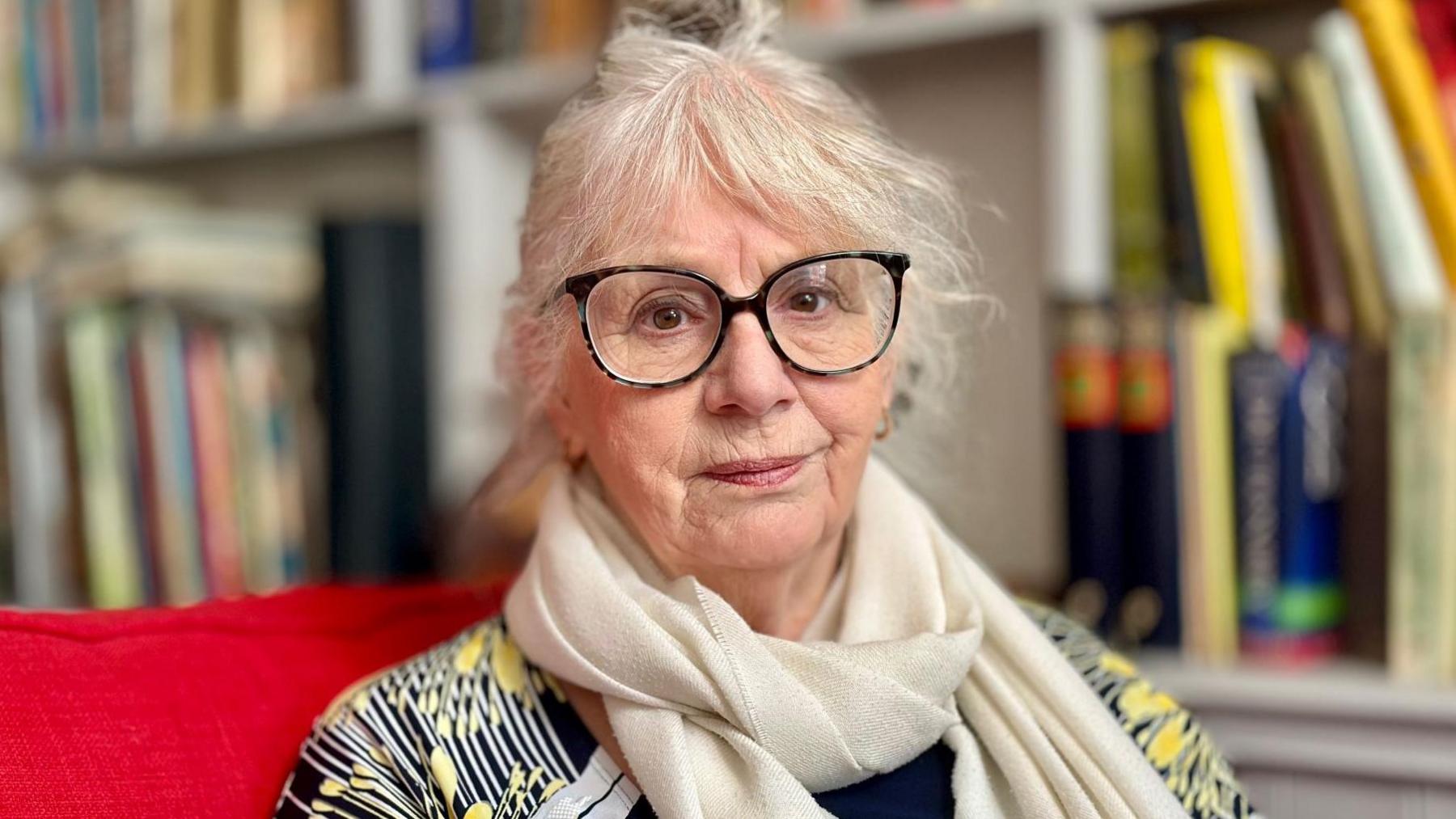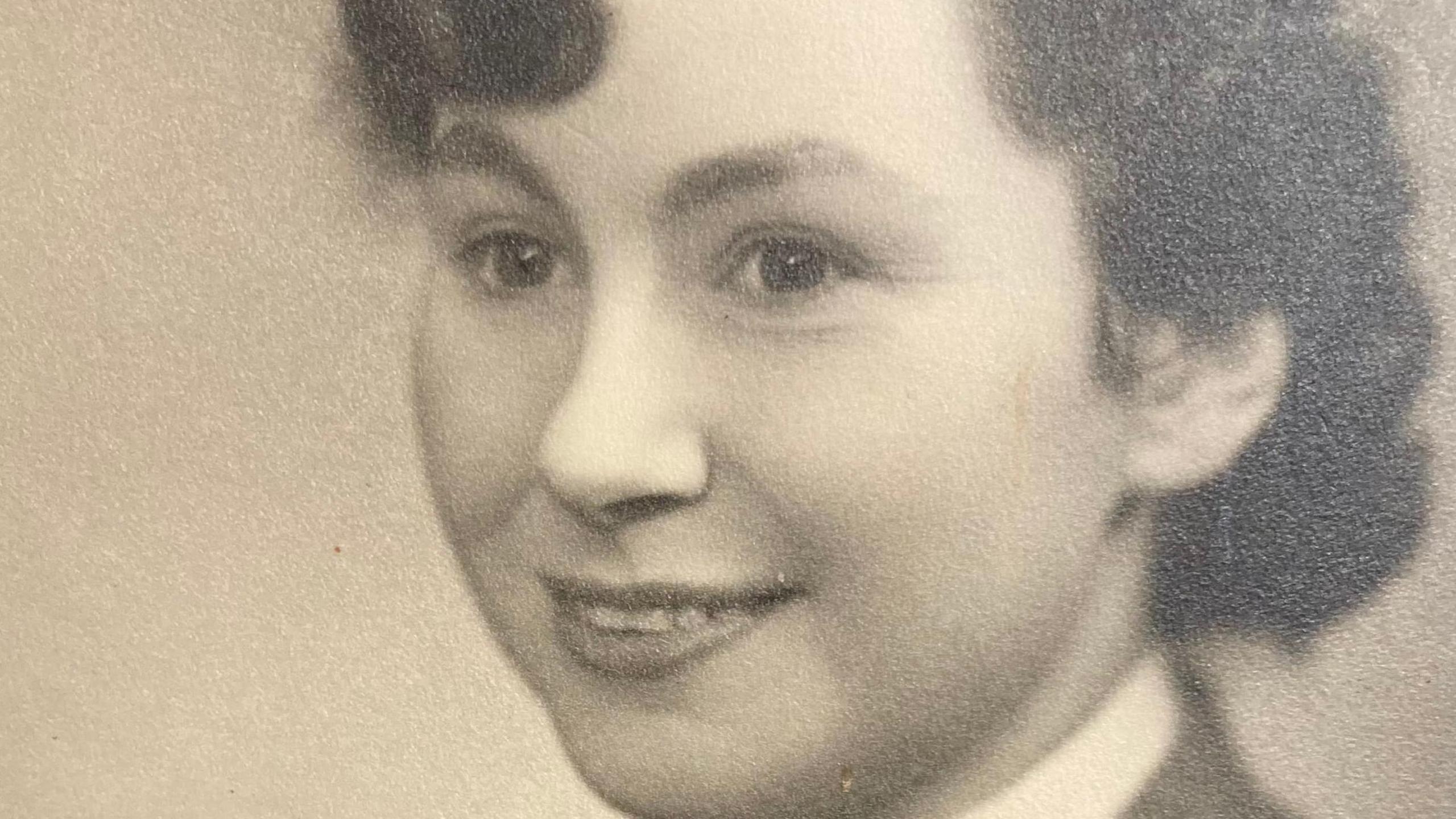Call for apology over cancer-linked pregnancy drug

Jan Hall is campaigning for greater awareness of the impact the drug DES had on women
- Published
A woman is calling on the government to apologise over a cancer-linked drug that was historically given to women to prevent miscarriage.
Jan Hall, from Bournemouth - whose mother was given Diethylstilbestrol (DES) - claims the UK government was too slow to act, despite research showing increased cancer risks for both the women who took it and their daughters.
"It's a shocking state of affairs and we don't know how many people are affected," the 75-year-old said.
A spokesperson for the Department of Health and Social Care said it sympathised with anyone harmed by historical use of the drug and that the secretary of state would "look seriously at these allegations".
More stories from Dorset
Player with broken neck waited hour for ambulance
- Published28 October
Sandi Toksvig probes Iron Age murder for TV series
- Published28 October
Views sought on £400k skate park rebuild plans
- Published28 October
Ms Hall was 18 months old when her mother Rita died of breast cancer aged 32 in 1951.
"I have no memory of her. It has had a devastating effect on my life," she said.
It was decades later that Ms Hall discovered her mother had been prescribed DES because she had a history of miscarriages.
DES is a synthetic oestrogen, first created in 1938. It was widely prescribed to pregnant women and also to new mothers to stop milk production.
In 1971, the US Food and Drug Administration advised doctors to stop prescribing DES to pregnant women after it was linked to a rare vaginal cancer, external - clear-cell adenocarcinoma - in the daughters of those treated.

Rita Milburn served as a nurse during World War Two and was prescribed DES after experiencing miscarriages
In the UK the drug continued to be prescribed in the 1970s.
Ms Hall told the BBC she was diagnosed with clear cell adenocarcinoma in 1970 when she was 20.
She said she had surgery to remove "most of the neck of the womb" and remembered being told it would "make it problematic" to have children.
She endured miscarriages before giving birth to two daughters.
Ms Hall said she was "absolutely convinced" DES contributed to her health problems and her mother's cancer.
Research suggests that mothers who took DES during pregnancy have about a 30% higher risk of breast cancer. , external
Ms Hall is now campaigning for action.
"My hopes for change are for greater awareness and scanning of people more," she said.
"We don't know how many generations it goes down.
"We need scientific research into it because that's been totally lacking in this country.
"I would say that the government needs to creates a scheme to compensate people and to look after people. And to apologise."

Jan Hall pictured as a baby with her parents and older sister
Labour MP for Bournemouth West, Jessica Toale, is working with campaigners.
She is leading a cross-party group of 37 MPs who are calling for the government to take action.
Toale said it is estimated 300,000 women were prescribed the drug in pregnancy.
"There was a very slow response in the UK," she said.
"The evidence was there for a long time and that's why these women need justice.
"I have no idea why the drug was still used when the evidence was so clear."
The Medicines and Healthcare products Regulatory Agency (MHRA) previously said the Committee on Safety of Medicines wrote to all doctors in the UK in May 1973 to advise against the use of DES in pregnancy.
In September 2025 the MHRA said that information was incorrect and apologised for the "error".
The latest Information provided by the MHRA states that it was recommended DES should not be taken during pregnancy in the early 1980s, with the 1981-82 edition of the Association of the British Pharmaceutical Industry datasheets containing a warning against use.

Labour Bournemouth West MP Jessica Toale is supporting campaigners and calling for action from the government
Toale said more needed to be done to improve knowledge of DES:
The MP added: "The amount of women I've heard from who have said, 'I've gone to the doctor, I've asked about DES and they didn't know what I was talking about'.
"The intergenerational impacts mean we need to track and trace those people to make sure that they're aware of the potential impacts as well.
"We have seen campaigns in other parts of the world - the Netherlands, the United States, Australia - that are trying to raise awareness and are starting to make progress and we need to see that here for our women as well."
The Department of Health and Social Care said it encouraged any woman concerned that they may have been impacted to contact their GP for advice.
It said the administration of DES to young people and pregnant or pre-menopausal women has long been advised against, although it remains a treatment option for some patients suffering specific malignant cancers.
A spokesperson for the MHRA said it sympathised with those harmed by use of DES in the past.
They added: "There has been a step change in reporting and record keeping since this time and today's regulatory frameworks are significantly different, with much stricter post-authorisation monitoring allowing for earlier identification and action on emerging safety issues."
You can follow BBC Dorset on Facebook, external, X (Twitter), external, or Instagram, external.